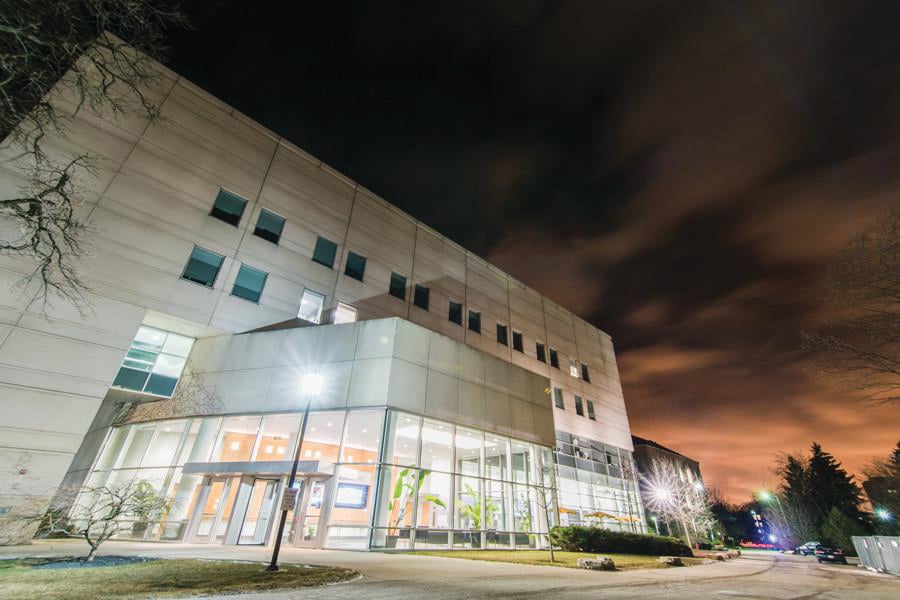Maritza Félix receives fourth Cecilia Veisman Award
Daily file photo by Jeffrey Wang
The Cecilia Vaisman Award began in 2019 in recognition of the late Cecilia Vaisman, a Medill professor and multimedia journalist.
October 3, 2022
Multimedia journalist Maritza Félix was awarded the Cecilia Vaisman Award on Monday afternoon.
The award recognizes the work of Latine multimedia journalists and has been given since 2019 by Medill and the National Association of Hispanic Journalists. Félix, the fourth recipient of the award, is a freelance journalist based in Arizona who has dedicated her career to connecting members of the Latine community.
She is the founder of Conecta Arizona, which connects members of the Mexican community of Sonora to residents of nearby Arizona through the messaging platform WhatsApp. Félix is also the executive producer and host of the podcast Cruzando Líneas and the co-founder, co-producer and co-host of the podcast Comadres al Aire.
The Vaisman Award honors the legacy of the late Medill associate professor and audio journalist NAHJ member Cecilia Vaisman. Vaisman’s husband, former Chicago Tribune investigative reporter Gary Marx spoke about his wife’s legacy and the meaning of the award.
“Cecilia was a journalist by profession, but an artist at heart,” Marx said. “Maritza, our family is thrilled you have won this award in Cecilia’s name.”
Félix tuned in from Spain to accept the award, expressing the importance of her identity in her work. Although Félix never had the opportunity to meet Vaisman herself before her passing in 2015, Félix said she admired her work for the boundaries she broke in reporting for Latine communities.
“As Latina journalists, especially those of us who work in Spanish, we’re always pushing uphill against gravity, hoping that our dreams will lead us to the top,” Félix said. “There are paths where the effort leaves us breathless, and fatigue makes our legs crumble, but we do not stop.”
She also talked about her experience immigrating to the United States and how the Mexican-American border reminds her of home. Félix recognized that she grew up with the privilege of being able to cross the border, and saw the United States as a temporary destination, unlike many others.
She said her journey through the immigration system was difficult. Her fight for legality included many sleepless nights filled with tears as she battled for visa sponsorship that would decide her future.
“I had to justify being in a nation that always felt alien to me,” Félix said. “Where at times, I felt like an imposter. Now, I know that I do belong here.”
Félix recalled the countless hours she had to work during her sponsorship process, saying she had to prove to others and to herself that she was worthy of a place in a new country. She described the immigration system as one that rewards suffering, calling it “obsolete” and “entangled.”
“I earned the medal of my freedom,” she said, “But, I am still a migrant.”
Félix concluded her acceptance speech by expressing how grateful she was to receive an award that recognized her work in the border community.
She also spoke partly in Spanish, translating much of what she previously said into her home language. Her poetic speech also touched more on themes of community struggle and the importance of representation.
“(This award) belongs to the community that does not need to be given a voice because they already have a voice, but is eager to have their accent and their voices amplified,” Félix said.
Email: [email protected]
Twitter: @joanne_n_h
Related Stories:
— WBEZ reporter María Inés Zamudio wins 2020 Cecilia Vaisman Award for Multimedia Reporters
— Antonia Cereijido wins inaugural Cecilia Vaisman Award
— Memorial for Medill Prof. Cecilia Vaisman highlights her legacy, passion for underprivileged


